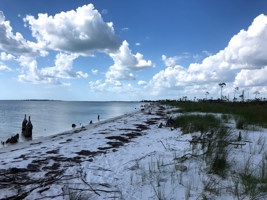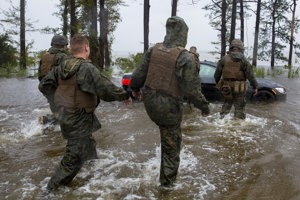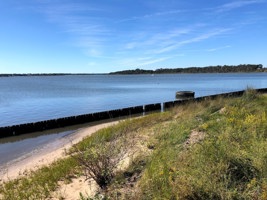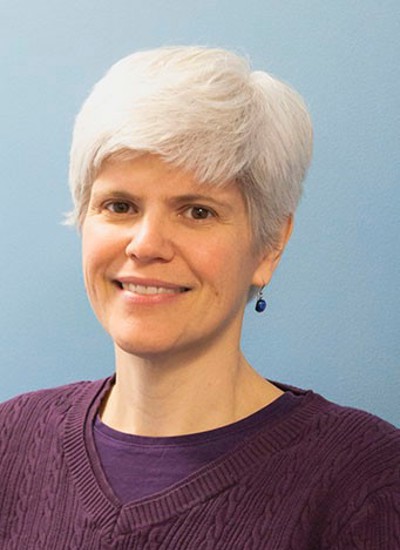- Home >
- Strategic Plan and Focus Areas >
- Coastal Resilience and Regional Adaptation
Coastal Resilience and Regional Adaptation



About
Weather-related events and increasing changes in environmental conditions, including hazards such as hurricanes, flooding, sea level rise, extreme temperatures, drought, and wildfires, put military readiness, natural resources, communities, and working lands at risk. These serious threats to mission assurance and mission-essential functions require collaboration to successfully enhance resilience across geographical and governance boundaries.
Although the missions of the SERPPAS partners are different, the partners share an interest in ensuring installation and landscape resilience in the face of these challenges. Collaboration on coastal resilience and regional adaptation, with a focus on integrating nature-based solutions into resilience planning and projects, will provide significant benefits to all partners and their respective missions.
Regional collaboration and coordination on coastal resilience will support military mission sustainment by minimizing loss of coastal training infrastructure or interruption of operations at low-lying bases; minimizing the potential for new species placement on the endangered species list and/or critical habitat designated in the vicinity of military installations; prioritizing watershed protection for increased water supply resilience and flood mitigation on installations and surrounding communities; minimizing damage to stormwater systems and other utilities shared between bases and communities; and increasing the effectiveness of joint installation and community planning for and recovering from severe weather events and changing environmental conditions. This collaboration will increase shared knowledge, resources, and tools among the military, natural resource agencies, and local communities by expanding the opportunities for successful solutions. As a result, SERPPAS will better protect military installations and personnel, lands, waters and wildlife, towns and cities, forests and farms, economic opportunity, and quality of life.
Strategic Objectives
- Continue expanding partnerships and capacity focused on connecting military installations and surrounding communities on resilience planning and actions.
- Explore how weather-related events and changing environmental conditions are influencing the other SERPPAS focus areas and identify opportunities to collaborate.
- Use and assist in the development of mapping tools, such as the SERPPAS good map, that can advance installation and community resilience planning and implementation.
- Support the South Atlantic Salt Marsh Initiative (SASMI) and the Marsh Forward Plan.
- Support the development, implementation, and evaluation of nature-based solutions for resilience projects benefiting military missions and communities in the southeast.
Work Group Lead

Michelle Covi is the Coastal Resilience DoD Liaison at University of Georgia Marine Extension and Georgia Sea Grant working regionally in the Southeast to connect Sea Grant programs with military community coastal resilience projects through a partnership with SERPPAS and the Readiness and Environmental Protection Integration (REPI) program.
Michelle comes to Georgia after six years as a coastal resilience lead in the Virginia Sea Grant extension program with Old Dominion University and six years with a coastal hazards center at East Carolina University where she also completed her Ph.D. in Coastal Resources Management. Michelle is a UGA alumna, having received her master’s degree in zoology (marine science) after completing research at the UGA Marine Institute. She lives on her husband’s family farm in Hartwell, Georgia, just a couple of miles from the Savannah River
Request to Join Work Group
Resources
Documents
 Promoting Coastal Resilience through Partnerships and Planning: Communities, Sea Grant Programs, SERPPAS, and Military Installations
Promoting Coastal Resilience through Partnerships and Planning: Communities, Sea Grant Programs, SERPPAS, and Military Installations Advancing Coastal Resilience in the Southeast Defense Communities - 2022 Sea Grant/SERPPAS Workshop Report
Advancing Coastal Resilience in the Southeast Defense Communities - 2022 Sea Grant/SERPPAS Workshop Report Advancing Coastal Resilience in Mississippi Defense Communities - 2023 Sea Grant/SERPPAS Workshop Report
Advancing Coastal Resilience in Mississippi Defense Communities - 2023 Sea Grant/SERPPAS Workshop ReportWork Group Presentations
OLDCC Installation Resilience Review Projects Series (part 1)
OLDCC Installation Resilience Review Projects Series (part 2)
Military-Community Climate Resilience Planning - Hampton Roads, VA
OLDCC Installation Resilience Review Projects Series (part 3) - NWS Earle
OLDCC Installation Resilience Review Project Series (part 4) - South Florida
Websites
Coastal Resilience DoD Liaison Program
Federal and State Funding for Coastal Resilience in Defense Communities
REPI 101 Primer
USACE South Atlantic Coastal Study
Southeast Climate Adaptation Science Center
Defense Coastal/Estuarine Research Program (DCERP)
Gulf of Mexico Alliance
How to Consider Climate Change in Coastal Conservation
Department of the Interior Nature Based Solutions Roadmap
South Atlantic Salt Marsh Initiative
NCICS-Precipitation Frequency
Podcast - Shore Up the Defense: Coastal Science Goes Tactical!







